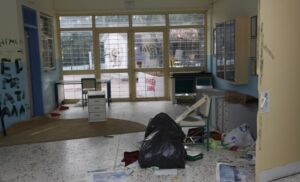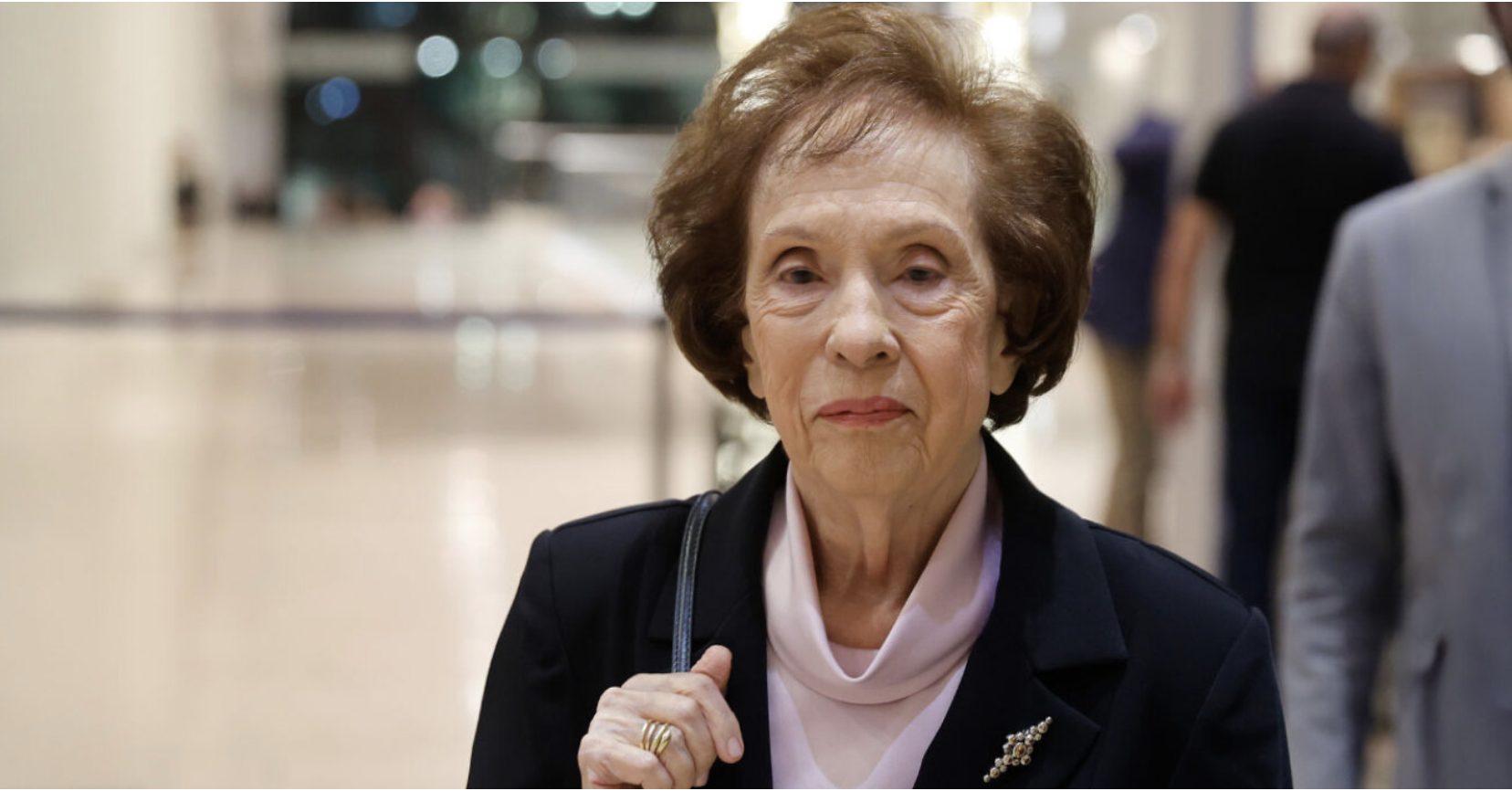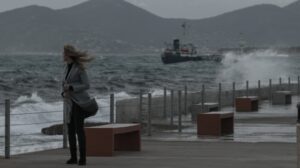The eleven changes that will take effect from the start of this school year were mentioned by Kyriakos Pierrakakis speaking on ERT Thursday night with the minister of Education to make a specific reference to both how damages caused by students in schools will be restored and the issue of mobile phones and the penalties for their use.
Specifically, regarding the measure of reparation for damage to schools by parents, Mr. Pierrakakis after answering that “absolutely yes” it will work, then explained about the imputation that it will start from the teachers’ association in the school, the Municipality will be added to the equation because the schools belong to the Municipality and from then on if the parent does not want to pay for the specific damage, it will now go to the tax office and will be certified from there.
For mobile phones in schools, he stressed that their obvious possession and use is prohibited and referred to the phrase used by the Prime Minister “the mobile phone in the bag”. He explained that once a student uses a mobile phone or is seen to be holding a mobile phone there will be a very specific set of consequences.
After stating that in the past there was also a circular banning cell phones but there were no consequences for their use, he then pointed out that in obvious possession and use, the penalty is a one-day suspension while once a child is filmed in a very sensitive moment, the person filming the person, student who is filming, will be transferred to another school.
These measures from the reintroduction of the five-day suspension, as it was in our years, to measures concerning the change of school environment are a framework of consequences that were mainly requested by the teachers themselves during the last school year, Kyriakos Pierrakakis said and pointed out that these are tools in the hands of teachers.
The absences
The Education Minister also referred to the changes that will apply to absences, saying the way they are counted will change. He stressed that until last year it was a total number, there were no excused and unexcused and when asked about this he said this is to avoid having empty schools and especially empty high schools at the end of the school year in some cases.
10,000 permanent teacher appointments this year
Pierrakakis recalled that this year there were 10,000 appointments of permanent teachers, adding that the number of substitutes should be significantly reduced. He stressed that every year the percentage of substitutes will be reduced in favor of permanent appointments, adding that “this is the decision of the prime minister, I think this is the right policy.”
He estimated that this year all times will come well ahead of all dates in terms of how schools are run. That is, next year will start even earlier, but these are all things that de facto you have to plan well in advance to be able to implement them, he noted.
On the ratio of teachers per student in Greece, he said “we have 200,000 teachers, and in relation to the total population we have the fraction ends up being 8.2 students per teacher while the European average, do you know what it is? It is 12.1. So Greece has a much better average than the European average.”
School vacancies and department mergers
Asked about school vacancies, he said that over the years “we have not done to the extent that we need to do a good organizational job, to improve our own house, a better distribution.” “In this context, we have about 61,000 sections, here now we are talking about mergers which are made in less than 2% of these sections[…]” he stressed and then gave an example “that is, in the 3rd high school a school in Kifissia has 6 six children in this direction. A very close school has three children in the other direction and you just join these two[…] we are talking about the implementation of the law which has already been passed and had been implemented in the past. By derogation, you have very small classes.”
The issue of merging departments has an organizational dimension so that you can achieve the best possible educational process and function in the school, he said at another point, “so that students can have the best possible results and the best possible education.”
“I don’t think there is a parent who is looking at us nationally right now who doesn’t want every school to be fully staffed, to have no gaps, to have good infrastructure, to have all things working perfectly. So to be able to guarantee that, we have to organize our human resources of teachers and teachers optimally. We are not reinventing the wheel. These are things that every country on the planet, every country in Europe, is doing. So we will do it well and we will do it better and better every year.”
The buildings and the interactive panels
On building infrastructure, he said among other things that we will wait to hear what the Prime Minister has to say on this issue at the TIF. “In any case, you will see the assistance of all of us in the coming period so that we can improve the situation of school housing. There is an issue, schools must come in 2024 as public infrastructure.”
Asked whether teachers have the necessary expertise to enable them to integrate interactive whiteboards into school activities, the Education Minister noted that there are training programmes that teachers use and which have been formulated by the Education Policy Institute. “The protagonist is always the teacher and the relationship he or she develops with the student,” he stressed. Interactive boards have been installed in the fifth and sixth primary schools, in the middle school and high school.
How the teaching of literature is changing
On the change in the teaching of the Literature course, he pointed out that it varies “the dosage in these literature books, which have remained very much the same since we were in the classroom. We need to do an enrichment by putting the complete book next to this classic literature book. I think it’s crucial to enable a child, a student to love books.”
He said that “older, more classic literature will be added. A lot of international books will also be brought into the school. I mention that there will be books that will be about the adventures of Sherlock Holmes, (…) Shakespeare. Julius Caesar will be included in the school, but of course, also classical Greek authors, which we must learn about more compactly. The new books will enter the classrooms towards the end of the school year.
At the same time, the Education Minister announced that “we will also invest in school libraries.” “It is very important to make a policy for these libraries and see how we can get new, more modern books as well. And a policy of lending, philanthropy, literary competitions. We want children to love books. It will change their lives.”
On September 16, Digital Tutoring
Regarding Digital Tutoring, Pierrakakis noted that on September 16, a section for the third grade begins, “but all the rest, for all the other grades, will take some time to complete. In order to have all the material we need to have it by the end of 2025.”
“I acknowledge the existence of the tutorial, we as a state must address as much as we can the problem that exists, which is that the Greek family is burdening their family budget to help their children by sending them to a tutorial. So that is what is there. No Minister of Education and no government can pretend that this does not exist. It is there.” Therefore, “we will start with a digital tutorial that is live. A student will have to register. They will register freely, it’s free. It will be live for all nationally tested subjects.”
He explained that “on the first day we will have our teachers who will be doing these classes. Along the way, we will add the possibility of questions, which will be grouped systematically.” Digital Tutoring will be a “tool to reduce inequalities.”
In September 2025, non-state universities
The non-state universities will start operating in September 2025, he noted. “We need to achieve the best possible educational results, not to be fearful, not to be afraid to open our doors, not to be afraid to let the flowers bloom, as the well-known saying goes. Greece must not be afraid to open up. There is a fear in this debate that I personally fundamentally do not understand. We can do miracles if we are not afraid.”
Regarding the support measures for substitute teachers in tourist destinations and remote areas, Pierrakakis said, among other things, “I am saddened that the problem is being instrumentalized by factions that have ruled and have not been able to solve it. (…) I will tell you that because the local government has many tools at its disposal, there are certain things provided by law that a talented mayor can do. I have seen the mayor, and I Mr. Livanio have spoken to mayors who are doing very important things to help teachers. I don’t think a mayor can’t help five teachers find a home. It’s in the best interest of the community.”
Regarding the EPALs, Pierrakakis spoke of campus-type high schools, with modern equipment in their labs, and disclosed that the goal is to establish 10-15 this year, “somewhere in the 60 we want in total. I believe that this should be done with the absolute partnership of the private sector, either the social partners or the companies themselves”.
“If we want this country to progress, education is the sector that will define its existence,” Pierrakakis said at the end of the interview.
Ask me anything
Explore related questions





